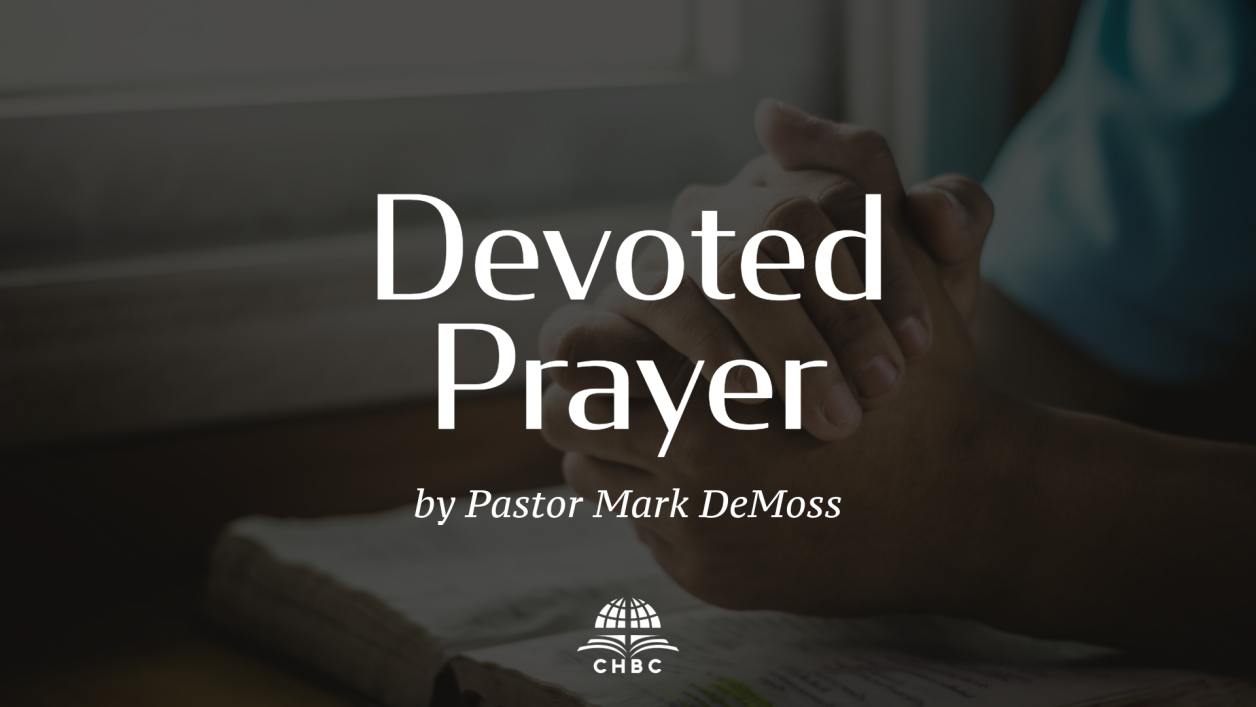
When the subject of prayer comes up in conversation among Bible-believing Christians, inevitably someone is going to think of the verse or mention the verse found in 1 Thessalonians 5:17, “pray without ceasing.” This is a great verse to recall as it relates to prayer, but it does leave a bit of confusion for most of us. What does it mean to pray without ceasing? Is this just a mentality we are to possess or is it really activity? Is prayer more important than Bible reading, worship, or witnessing?
I think it can help us to put that verse back in its context and then we can think more clearly about what it means and therefore how it is to be lived out by us. The immediate context for this verse begins in verse fifteen and runs through verse eighteen.
See that no one repays another with evil for evil, but always seek after that which is good for one another and for all people. 16 Rejoice always; 17 pray without ceasing; 18 in everything give thanks; for this is God’s will for you in Christ Jesus.
Paul is saying to the Thessalonians, and God is saying to us, that when an evil occurs to you do not repay that evil with evil. Instead, always seek after that which is good for one another and for all people. Always. Do not harbor the feelings that evil may cause in you, but instead, rejoice always. Always. Pray always. Give thanks always. This is the way Christ responded to all the wrong done to Him. God redeems us for the purpose of making us like Christ, so that we enjoy the peace of Christ, the presence of Christ, and the place of Christ.
To be able to respond to harm done to us would require us to always pray, or to pray without ceasing. The context helps us understand why Paul gives the command to pray without ceasing. But what does it actually look like to be praying without ceasing? It means at least these three things:
- Dependence – there should always be a spirit and attitude of dependence on God in all that we do. So that even if we are not consciously speaking to God with our lips or minds, we are conscious of our dependence upon Him that is the essence of our faith.
- Repeated – the phrase “without ceasing” used in other contexts carries the meaning of frequent and often. This is Paul’s meaning here. He is not saying that every second you are consciously praying, but that prayer is frequent and often. Harmful events in your life tend to linger in our minds. Ugly words and mean acts tend to stick with us. Paul is urging that pray should come as regularly as those thoughts.
- Perseverance – without ceasing must mean that we never get to a place where we give up on prayer. At the very least this phrase must mean that we will stay at the practice of prayer even when it may appear that our prayers are not making any difference. We must stay at the practice of prayer. We cannot rejoice always if we are not persevering in prayer.
One aspect of the early church we want to be faithful to copy is to be devoted to prayer. We can pray at any time and in any place. Pray without ceasing emphasizes that principle. But it does not remove the necessity of having set times for prayer. In fact, being disciplined to have times you pray does not negate this command of Paul. Disciplined moments of prayer ensures that at least each day there are times you are engaged in unceasing prayer.
By His Grace and For His Glory,
Pastor Mark

